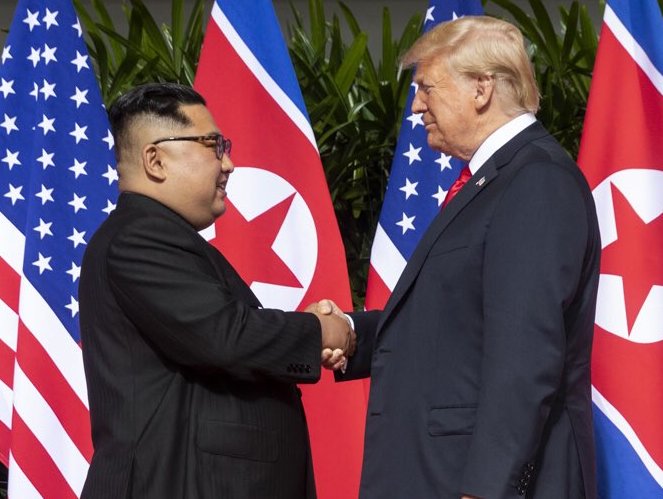The Peninsula
Can We Trust Kim Jong-un? Does it Matter?

By Mark Tokola
One of the questions I’m most frequently asked is, “Can we trust Kim Jong-un?” Sometimes it is worded, “Is Kim Jong-un serious when he says he is going to denuclearize?” I usually begin my answer with, “I have no idea, and I’m not sure it matters.”
Trusting relationships are important in international relations, but they are usually the result of sustained engagement rather than first impressions or expediency. There are allies whom the United States can count on in an emergency because we have a history of coming to each other’s aid. Canada sheltered and helped American diplomats escape during the Iranian hostage crisis in 1979. The United States risked its relations with Latin America by assisting the UK during the Falklands War in 1982. Neither of those actions were in response to treaty obligations: they were the result of long, trusting relationships built on shared experience. Countries of course put their own interests first, but familiarity with the long-term benefits of cultivating alliances restrains impulses for short-term selfish gains.
However, when it comes to adversaries, whether we can trust them or not is beside the point. It is important to deal with adversaries to avoid conflict and minimize the costs of tension. The Cold War idea of “peaceful coexistence” meant that competing, even adversarial, systems could channel their competition in ways to avoid a nuclear showdown. The Cold War adversaries didn’t abandon their long-term goals of becoming the dominant global system. They didn’t have to trust each other or even to pretend to like each other. They found it in their mutual benefit to engage in long, gritty, detailed, negotiations on arms control and supporting confidence building measures. I don’t remember much (if any) discussion on whether John Kennedy and Nikita Khrushchev, or Richard Nixon and Leonid Brezhnev, trusted each other. They based their relationships on observable, verifiable behaviors rather than on impressions of their trustworthiness.
The point of the ongoing process is to determine what North Korea will do to eliminate or at least minimize its nuclear and missile capability, rather than to focus on what Kim Jong-un says he will do – and even less what he thinks about the issue.
The Trump-Kim and Moon-Kim summits have created the possibility of detailed arms negotiations, which is a big step forward. It is also positive that concrete (albeit unilateral) steps have been taken: North Korean halting of nuclear and long-range missile tests, the release of American hostages, and return of American Korean War remains. For their part, the U.S. and South Korea have suspended joint military exercises and inter-Korean talks have made progress. The United States and South Korean have made clear, however, that the key issue remains denuclearization. All else is in support of that. Those talks have not really begun, as far as we know.
When the real denuclearization talks begin, they should be highly specific in regard to numbers, locations, timetables, verification, and inspections. This focus on detail should not be viewed as a lack of trust. The danger of vague commitments is that they are likely to lead to conflicting interpretations – raising rather than lowering tension. Without the standard of specific commitments, “cheating” is in the eye of the beholder.
It is not only in the interest of the United States, South Korea, and the international community that the denuclearization agreement be technical and detailed, it is also in North Korea’s interest. North Korea will need confidence that it fully understands what is expected of it. Otherwise, it might itself risk being subject to shifting goal posts. Maybe even more important, a tight, well-crafted denuclearization agreement will save North Korea from future, internally-generated temptations to cheat. Kim Jong-un might come to appreciate being bound by an agreement so as not to have to deal with such temptations.
The important question to ask is not whether we can trust Kim Jong-un, it is whether U.S., North Korean, and South Korean negotiators can craft a denuclearization agreement that does not depend on his trustworthiness.
Mark Tokola is the Vice President of the Korea Economic Institute of America. The views expressed here are his own.
Photo by Dan Scavino Jr., assistant to President Trump. As a work of the U.S. federal government, the image is in the public domain.
